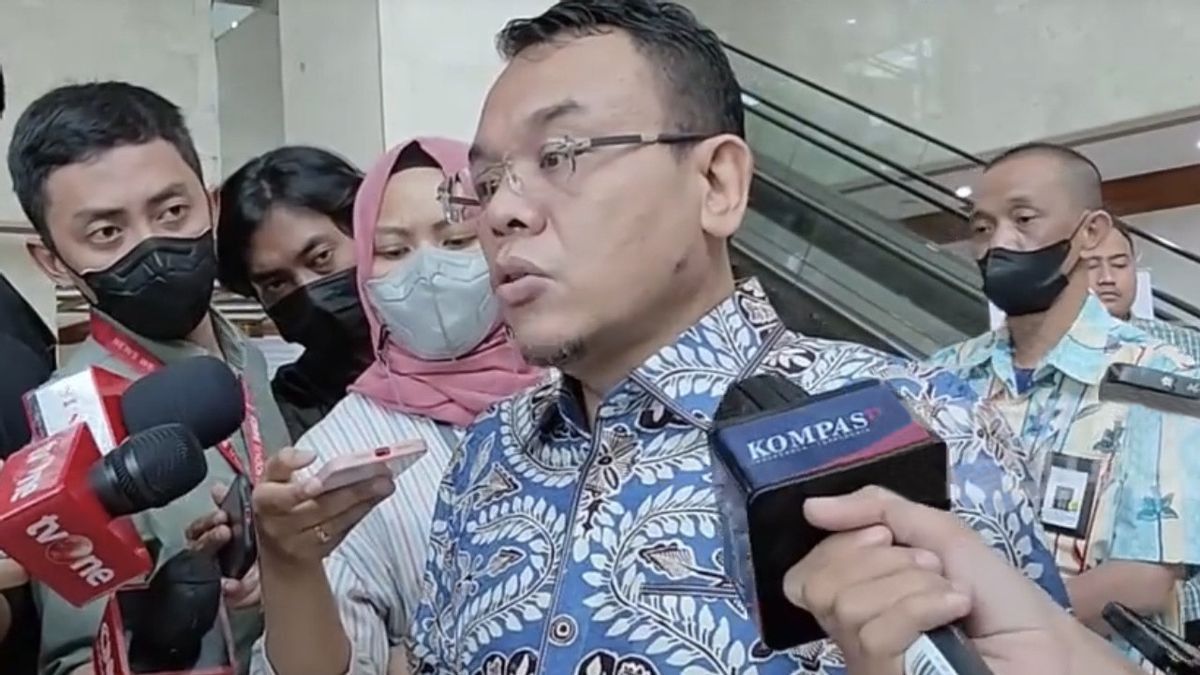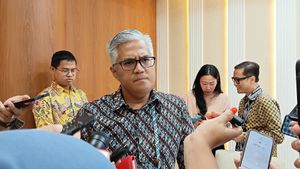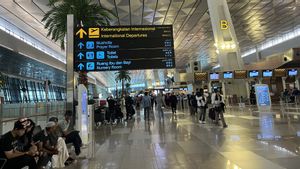JAKARTA - The Indonesian government has temporarily suspended the sending or placement of PMIs to Malaysia due to a violation of the agreement agreed by the ministers of manpower in their respective countries.
Commission IX member Saleh Partaonan Daulay supports the government's policy of moratorium on sending PMIs to Malaysia. Moreover, the reason is based on aspects of protection against PMI.
In this case, said Saleh, there was an agreement between the Indonesian and Malaysian governments that was not implemented consistently. This is considered potentially detrimental to PMI.
"There is already an MoU. In my opinion, it is very strong. Because it was signed in front of President Jokowi and the prime minister of Malaysia. Supposedly, since the signing of the MoU, the PMI placement process no longer uses the old way. It must be better administered and monitored properly That way, the comfort and safety of all PMIs in Malaysia can be ensured," Saleh told reporters, Friday, July 15.
However, he continued, there are several things that must be considered by the government in this policy. First, the government must ensure that there are no illegal and non-procedural PMI shipments to Malaysia.
"Don't let this moratorium decision actually make PMI leave without going through formal channels. This will definitely be difficult. Maybe not now, but later if something unexpected happens," said Saleh.
The chairman of the DPR's PAN faction said that a moratorium like this has already been implemented in Middle Eastern countries. In fact, said Saleh, PMI still departs informally and non-procedurally.
"I received information, the number is very large. This means that the moratorium does not improve the situation as desired. In fact, there is a new problem where PMI protection is increasingly being handled because it is not being monitored," said Saleh.
"Those who go non-procedurally will stay hidden. Hiding when leaving, hiding after arriving at work. Well, if later there is a problem, then the government will have trouble. There are many who have problems too. Starting from working hours, salaries, violence, and others -other. Of course the government will try to protect it. But it will definitely be difficult and complicated because from the start it was not in accordance with the proper path, "he explained.
Second, the government must prepare alternative employment opportunities in the country. Because according to Saleh, most of those who want to work abroad are having difficulty finding work in their area.
"This is what the government should think about so that our workers are not unemployed," said the North Sumatran legislator.
Third, the government must improve the implementation of job training. This job training is intended to provide Indonesian workers with expertise.
"Even if you have to go abroad, the targeted work is formal work. As much as possible, it should be avoided sending informal PMIs who work in the domestic field. This can only be done if our PMIs have expertise and qualified work skills," concluded Saleh.
The English, Chinese, Japanese, Arabic, and French versions are automatically generated by the AI. So there may still be inaccuracies in translating, please always see Indonesian as our main language. (system supported by DigitalSiber.id)













